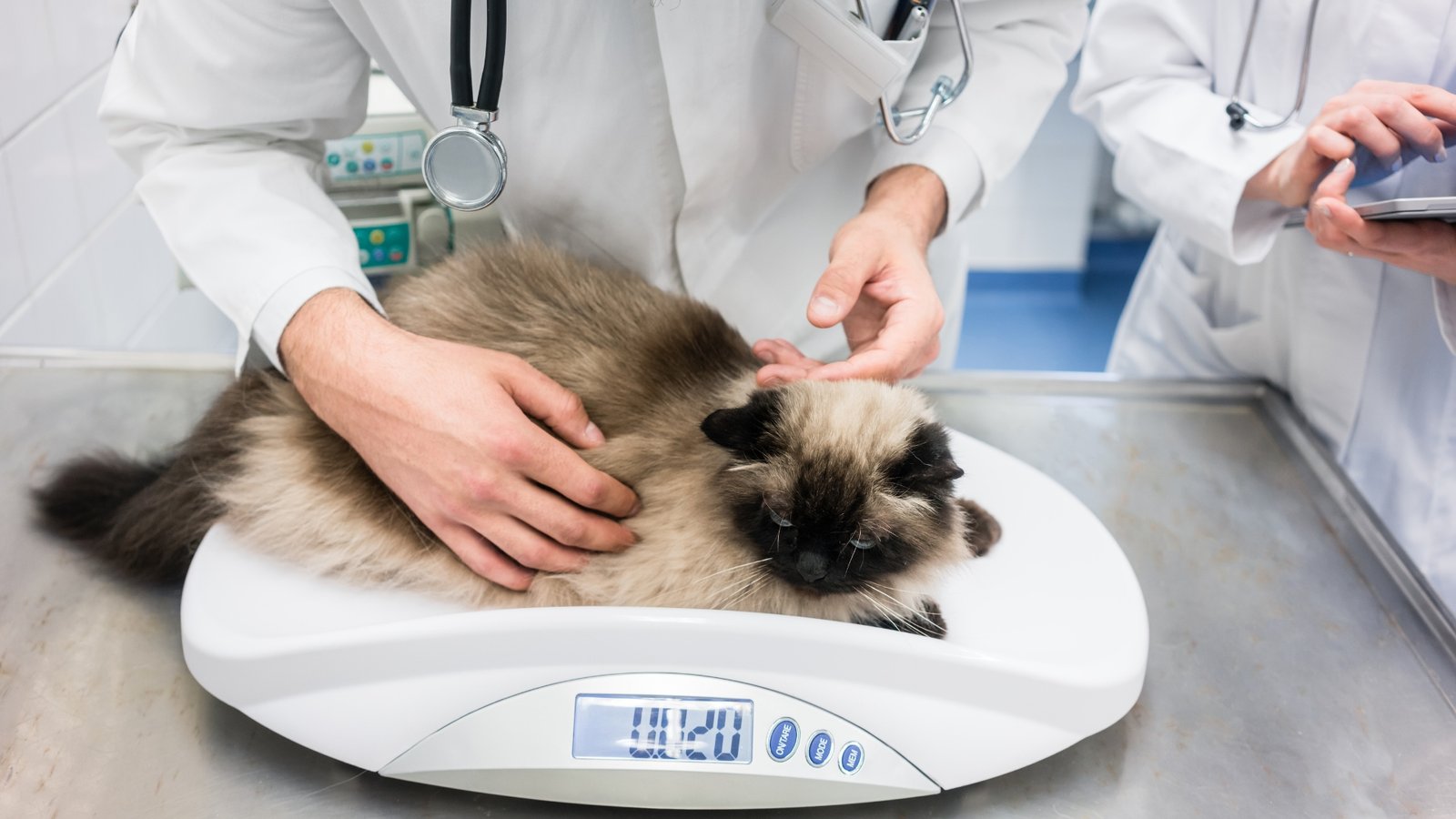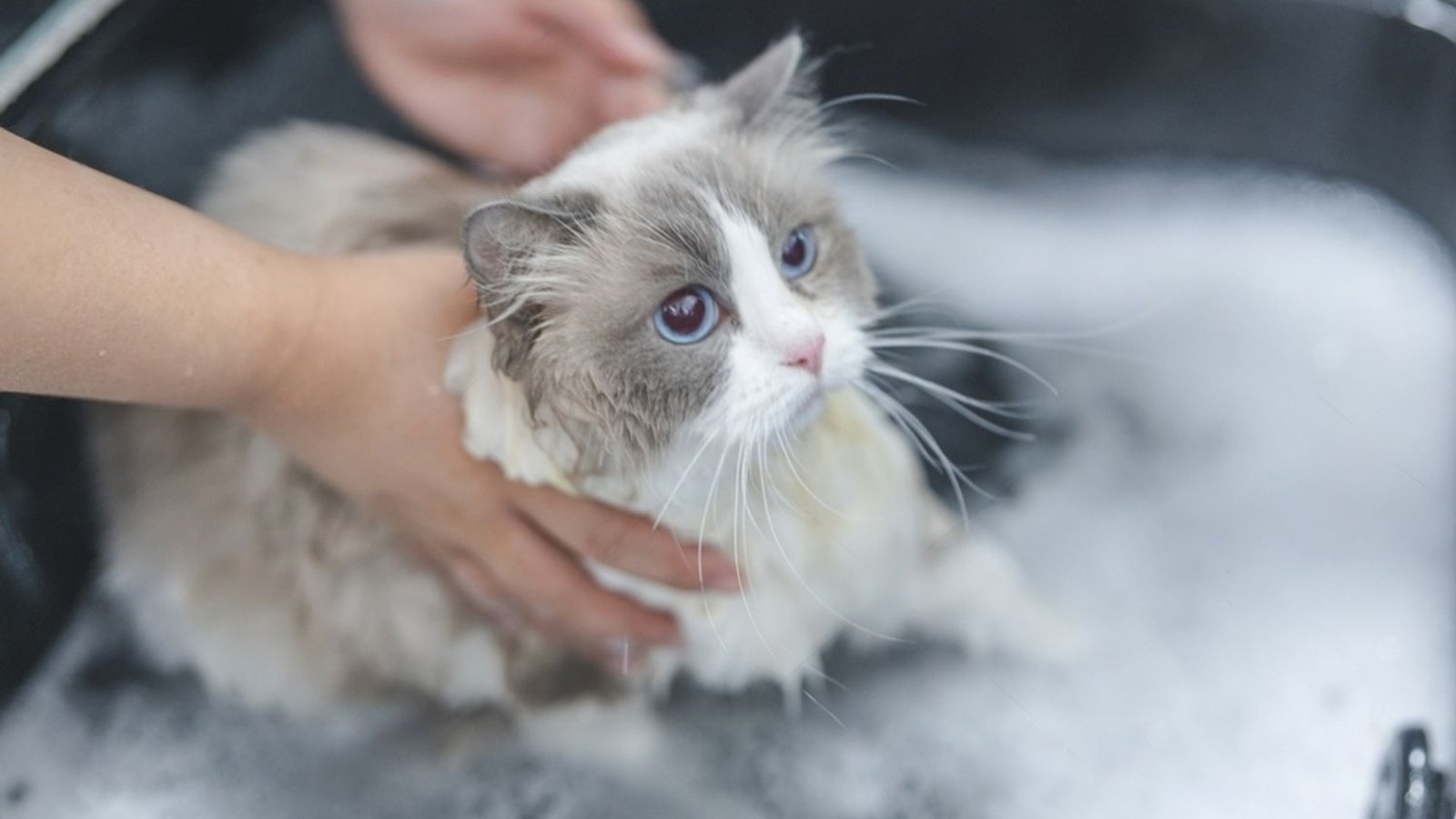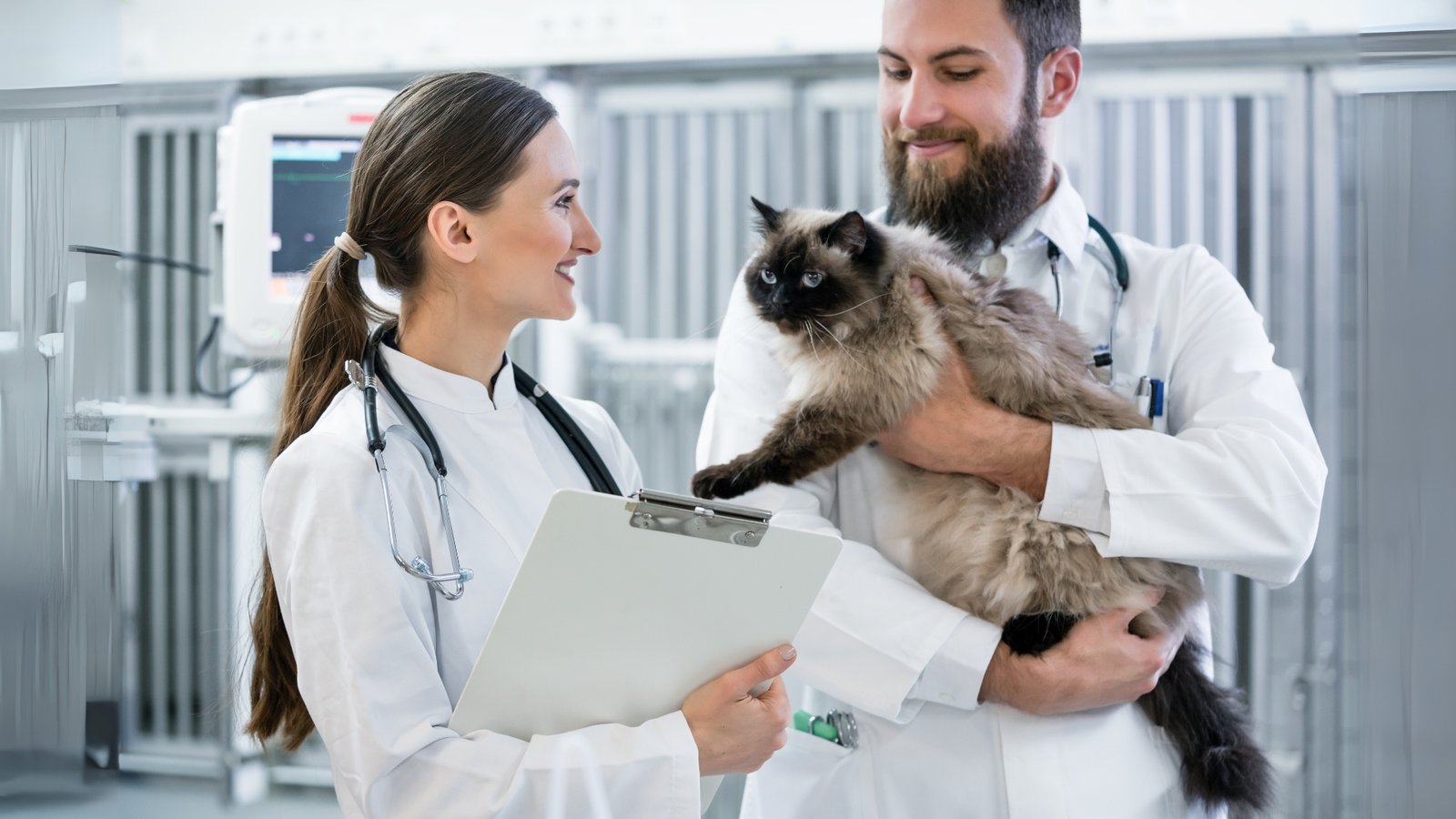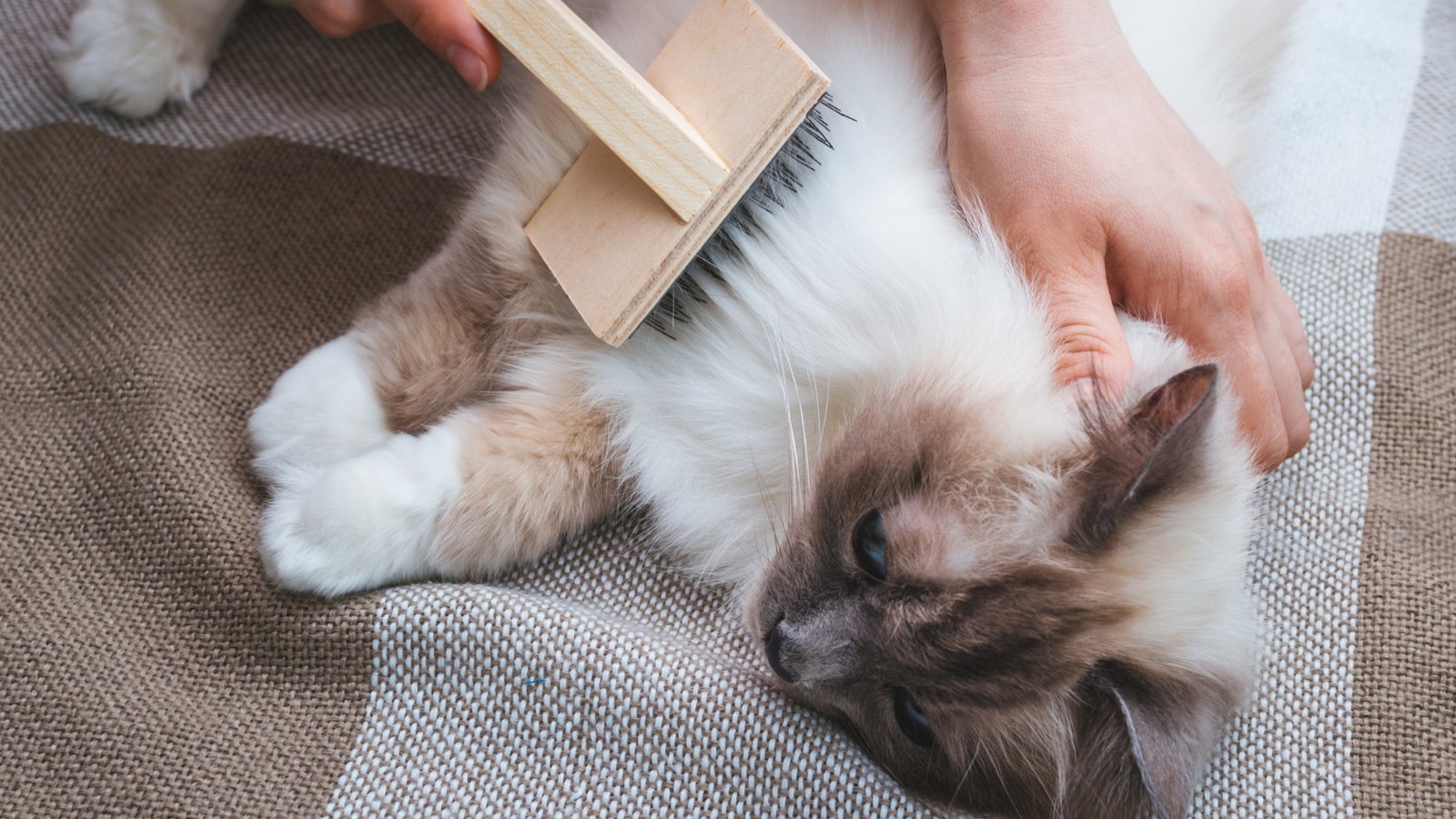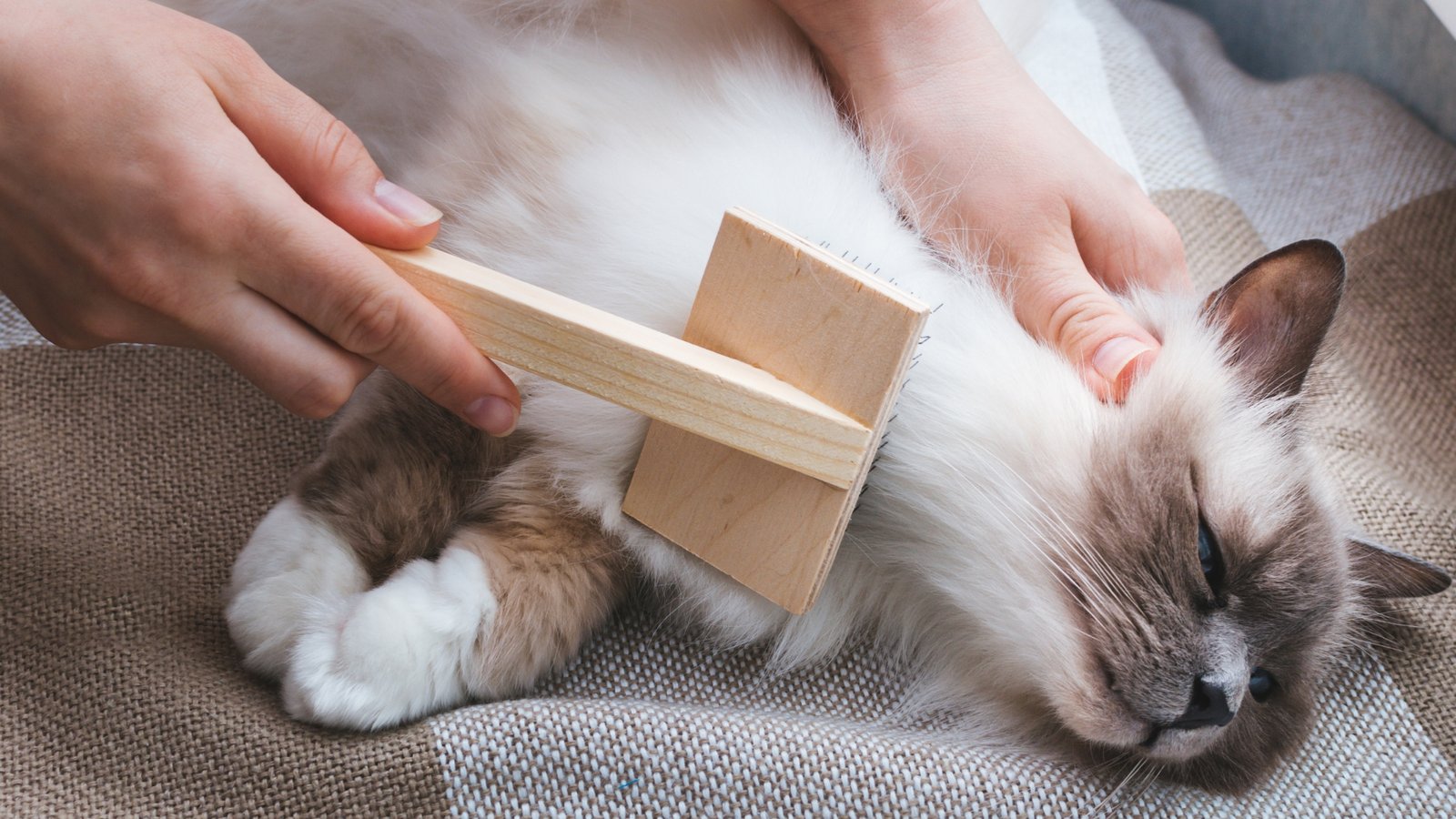All kittens, not just ragdolls, do need proper vaccination and preventive care to stay out of viral infectious diseases. Mainly the core vaccines, as confirmed by AAHA/AAFP, include Feline Herpesvirus Type 1 (FHV-1), Feline Leukemia Virus (FeLV), feline calicivirus (FCV), feline panleukopenia (FPV), and rabies.
As a ragdoll parent, it’s up to you to get your ragdoll kitten’s vaccinations scheduled at the appropriate times as your veterinarian recommends. Typically, core vaccinations start when the kitten is around six to eight weeks old, with booster shots every year or every three years.
We’ll share all about how vaccines work, the vaccination schedule for ragdoll cats as they grow up (both core & non-core), and what you can do to keep them safe before they get shots.
Related Read: How To Choose The Right Veterinarian For Ragdoll Cat
How Do Vaccines Work?
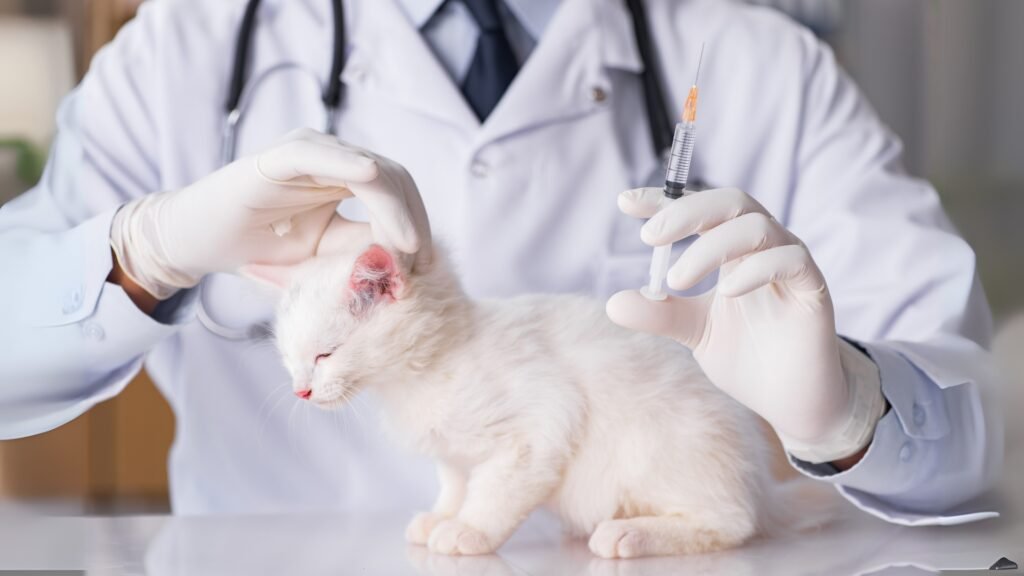
In simple terms, vaccine is a substance that triggers the production of antibodies to fight off specific contagious diseases before your ragdoll kitty ever encounters them.
Vaccines work by exposing the kitty body to antigens ( weakened or inactive forms of pathogens). This exposure signals its immune system as foreign invaders and mounts defense. In response, the kitten’s body produces specific antibodies (proteins) to combat these antigens.
So, this helps in the perception that if the ragdoll cat’s body later comes up against the actual disease, it immediately starts generating antibodies as an immune response to eliminate the invading agent.
What Vaccine Do Ragdoll Kittens Need?
Your veterinarian likely categorizes vaccines for your Ragdoll kitten into two main groups:
- Core vaccine
- Non-core vaccine
Irrespective of lifestyle, Core vaccines are the go-to for almost every cat & dog breed. Although, non-core vaccines are more like optional extras, still somewhat recommended based on your ragdoll kitten’s risk of exposure, lifestyle, and geographic location.
Core Vaccines
Rabies Vaccine
The rabies vaccine is a core shot that all kittens should receive, as it shields against a very deadly virus that is transmissible to humans. This vaccination is required by law in most regions around the globe, and vets and organizations like the AAFP and WSAVA consider it an essential part of a cat’s healthcare regimen.
FVRCP Vaccine
Another core vaccine for Ragdoll kittens is FVRCP, which is a 3-in-one combination shot that guards against feline viral rhinotracheitis, calicivirus, and panleukopenia (also known as feline distemper). These are highly infectious and very much dangerous diseases that can be devastating for ragdoll kittens. The FVRCP vaccine provides a good deal of protection against these threats.
FeLV Vaccine (Core for Kittens)
The FeLV is considered core for ragdoll kittens aged less than a year & non-core for over a year of age ragdoll cat. It largely protects against the feline leukemia virus, the most deadly virus. FeLV is found all over the world and is likely to be transmitted from cat to cat through saliva, urine, feces, nasal secretions, and other bodily fluids.
The initial series includes two doses given three to four weeks apart. All adult cats should receive a booster one year after the initial series. Your vet, which you trust the most will decide on the necessity of further annual or triennial FeLV booster shots based on your cat’s lifestyle and potential risk factors.
Non-Core Vaccine
Not heavily advised for indoor ragdoll cats, non-core shots are more selectively suggested based on a number of factors which could be the environment they are in, the animals they are with, and overall lifestyle. A very common non-core vaccine for ragdoll kittens is the Bordetella vaccine, which causes upper respiratory infections.
Aside from that, not all vets recommend these non-core vaccines, as they are typically only needed in certain situations. As long as your Ragdoll is up-to-date on their core shots, they should have a sufficient level of protection (antibodies) against the most common and dangerous feline illnesses (FeLV, FPV, FCV, rabies).
Vaccination Schedules For Ragdoll Kittens & Adult Cats
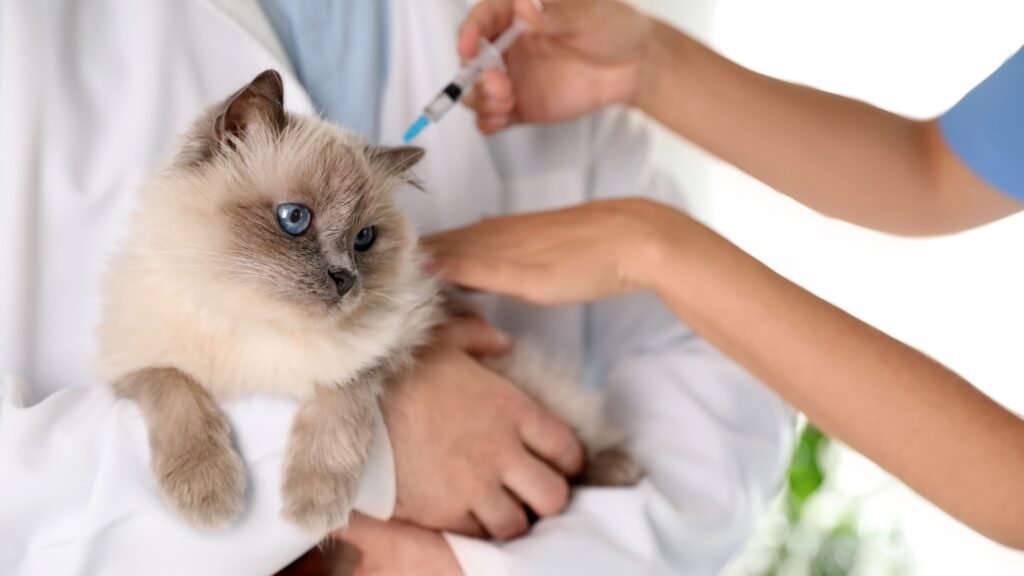
We’ve put together cat vaccination schedules based on solid research, vet opinions, and regulatory guidelines. This way, you’ll have complete timeline info about the administration of each vaccine to your ragdoll kitten or adult cat. Nevertheless, your ragdoll kitten vaccination schedule could vary based on their health condition, region, and specific lifestyle factors.
6–8 weeks
- FVRCP (first core shot)
- FeLV (First core shot)
10–12 weeks
During this stage, Ragdoll kittens receive follow-up doses of the;
- FVRCP (Feline Viral Rhinotracheitis, Calicivirus, and Panleukopenia)
- FeLV (Feline Leukemia Virus) vaccines.
Follow-up doses help boost the initial immune response from the first round of shots.
14–16 weeks
- FVRCP (core; only if first shot given at 10-12 weeks)
- Rabies (revaccinate 1 year later)
- FeLV (core; only if first shot given at 10-12 weeks)
1 year after the initial shots
- FVRCP booster shot
- Rabies booster shot
Adult & Senior Ragdoll Cats (over 1 year old)
Every year
- FELV (optional non-core vaccine)
Every 1–3 years
- FVRCP (every three years for indoor cats, and annually for outdoor, young, or senior cats)
- Rabies (Vaccine valid for 1 or 3 years, subject to state regulations)
Ragdoll Preventive Care
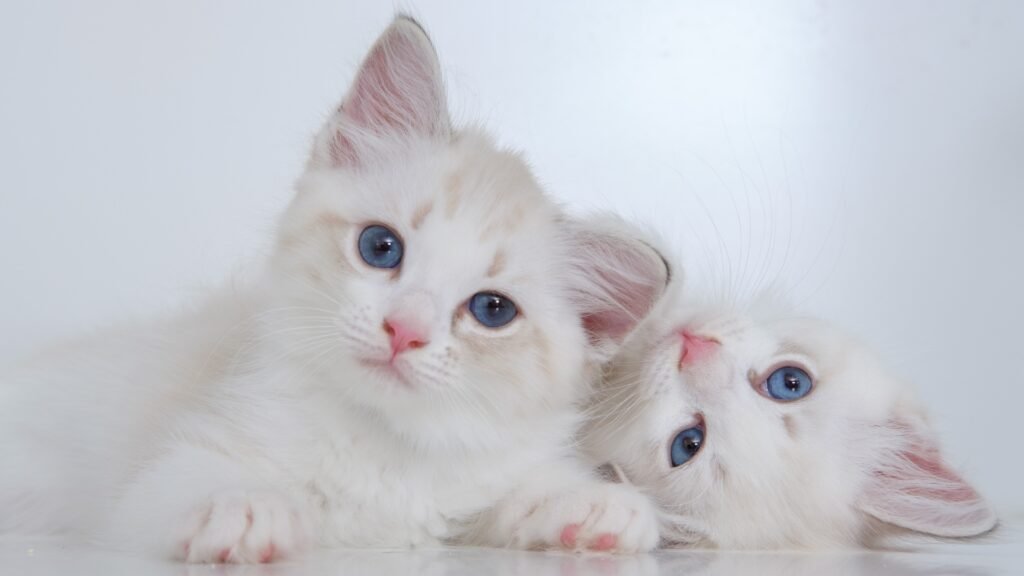
Vet Checkups
Ragdoll cats are pretty healthy cat breed, known for their docile temperament, big size, and cute look. To be on the safe side, preventive care measures however should be diligently followed. Frequent vet visits are fine because these cats often hide their pain as of their natural wild response, and they are really good at it.
Ragdolls are prone to certain health issues such as obesity, heart disease, gastrointestinal disorders, polycystic kidney disease, and urinary tract disease. To catch on these issues lately, a vet visit at least once a year is recommended. Routine veterinary checkups aid in early diagnosis of potential health problems your ragdoll cat might face, accordingly allowing for timely treatment plans to be set up.
Diet & Nutrition
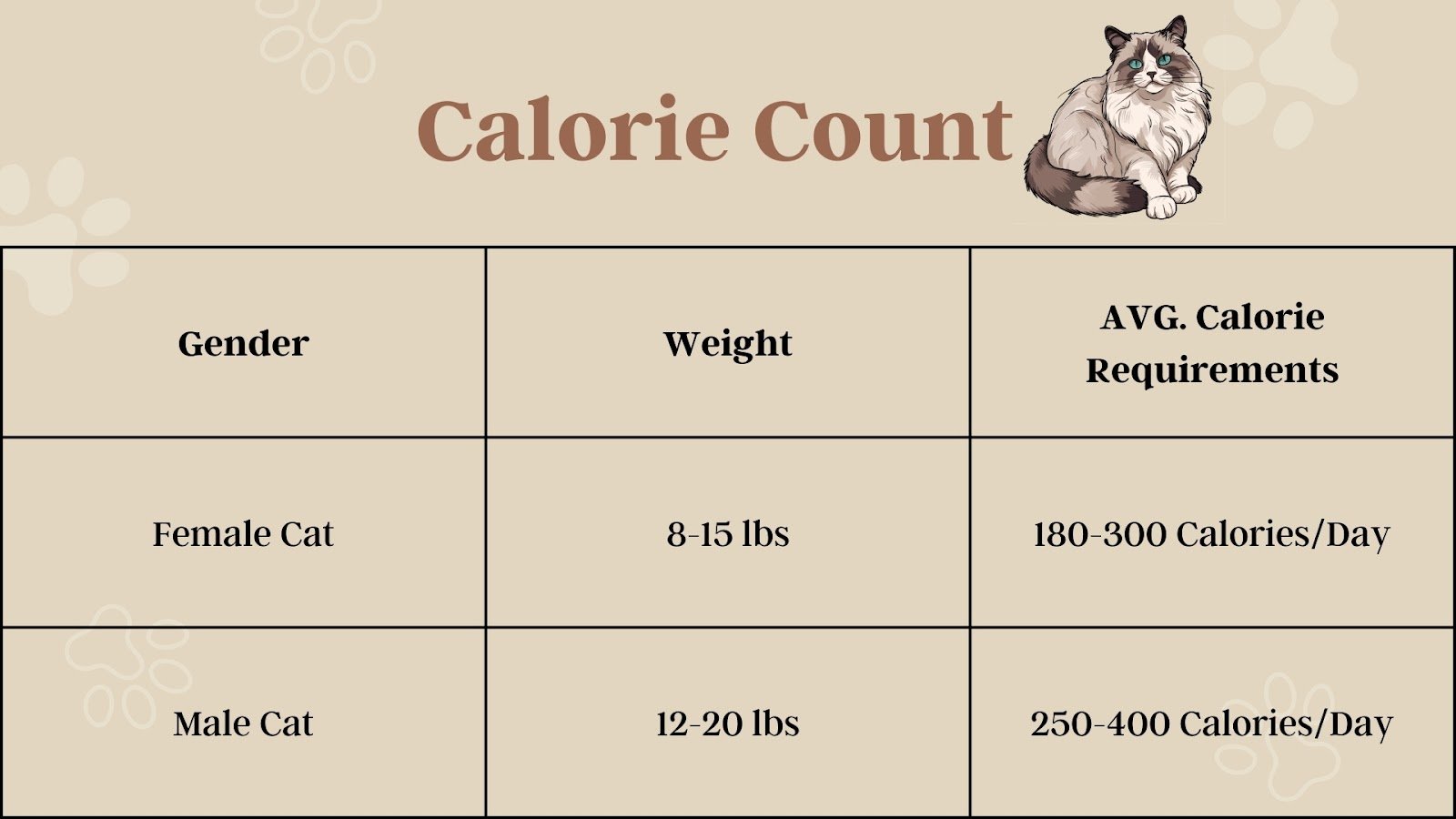
As obligate carnivores, Ragdolls thrive on a diet rich in animal proteins. Be conscious of what food you’re feeding them; the best Ragdoll food is typically wet, meat-based with more moisture and nutrients. Avoid dry food that is high in carbs and low in moisture, as overconsumption of such food can heavily lead to overweight issues.
Grooming & Hygiene
Ragdolls have semi-longhaired luxurious coats, whether solid black, chocolate, or seal breed; they all need regular grooming sessions. Brushing their hair twice a week helps to prevent matting and reduce shedding. A monthly bath with cat-friendly shampoo will help keep their coat clean and shiny. Trim their claws regularly and give them so much tender love (it’s all part of grooming).
Safe Environment
To prevent vulnerability to widespread viruses (FeLV, FCV, FPV) causing diseases, keep your Ragdoll kittens indoors (make safe space for them) for the first 6-8 weeks at least or until they have completed their vaccination schedule. During this time, limit their contact with any other cat breed, wash your hands if they’re dirty before picking them up, and make sure they remain close to their mothers. This approach heavily reduces the risk of contracting infectious diseases.
Healthy Playtime
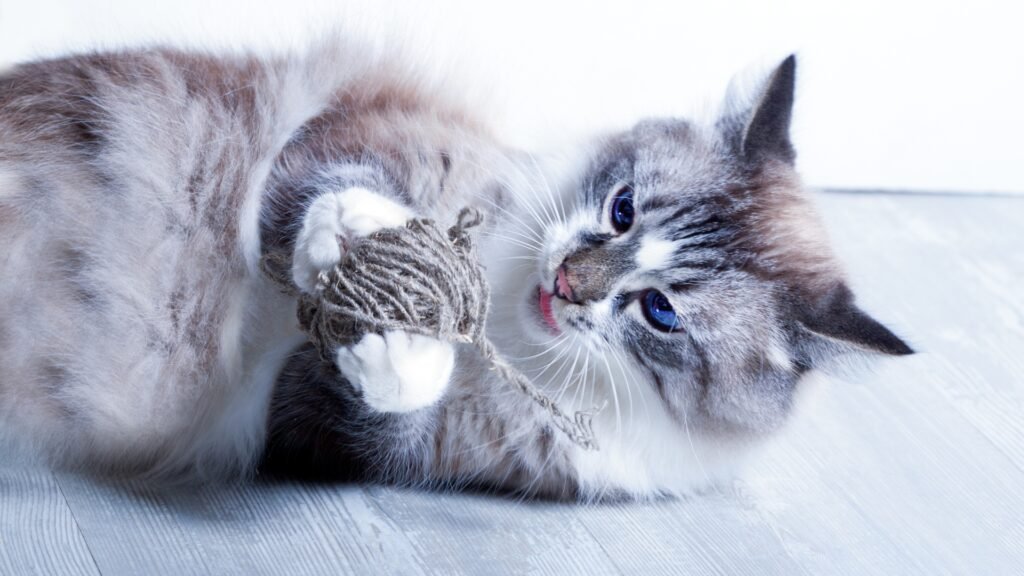
Ragdolls are overly friendly felines and enjoy playtime with their playmates. Indoor cats like Ragdolls benefit from interactive play toys such as fetch or clicker play. Toys like toy mice, soft cat playing balls, and interactive games are perfect for stimulating their instincts. These playful interactions help them pick up new tricks and burn off calories, which is essential given their propensity for weight gain.
FAQs
How many vaccinations do Ragdoll kittens need?
Ragdoll kittens typically require multiple vaccinations starting at 6–8 weeks and continuing through to around 16 weeks. The standard series includes the FVRCP vaccine, which protects against feline viral rhinotracheitis, calicivirus, and panleukopenia (FPV), as well as the FeLV vaccine for feline leukemia. Booster shots are recommended once a year to maintain adult cat immunity.
How much does it cost to get a Ragdoll kitten vaccinated?
The cost for vaccinations can vary, but on average, you can expect to pay between $25 to $50 per shot. Depending on where you are and what your vet suggests, the total cost can really add up, so it’s smart to plan ahead.
What vaccines do Ragdoll cats need?
Ragdoll cats should get the core vaccines: FVRCP, FeLV, and rabies. If your cat travels abroad or is exposed to other animals, additional vaccines (Non-core) may be necessary, as advised by your vet.
Conclusion – The Bottom Line!
Ragdoll vaccination is obligatory. It protects them from widespread viruses and incurable diseases and, thereby should be administered under your vet’s recommendations. Kittens require FVRCP, FeLV, and rabies vaccination starting from 6–8 weeks and continue at regular intervals until they are 16 weeks old with booster shots as they turn 1 year old. Apart from ragdoll kitten vaccination, proper nutrition, hygiene maintenance, and consistent love & care contribute heavily when it comes to their well-being.
Written By: Usman Malik | Reviewed By: Ali Abbas | Fact Checked By: Aqib Zulfiqar



